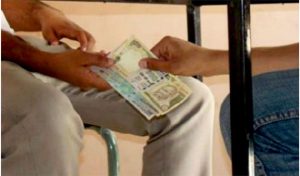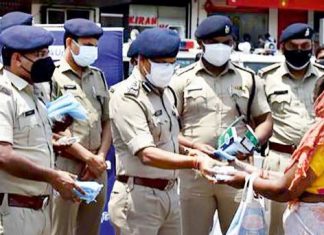
Evolution
White-collar criminality has become a global phenomenon with the advance of commerce and technology. Like any other country, India is equally in the grip of this kind of crime. Recent developments in Information Technology, particularly during the closing year of the twentieth century, have added new dimensions to white-collar criminality. 2018 was both exciting and challenging for the white-collar industry. The government, enforcement agencies and regulators introduced new laws and tightened the scrutiny and penalties in India ensuring compliance. Multi-national corporations have focused on them seriously and taken steps to streamline their processes and comply with the regulatory framework. India has been trying incessantly to purge its public institutions of systemic corruption. While corruption perception indices published by Transparency International rank India poorly, India has made some strides last year in laying the groundwork for a corruption-free society and economy.
This notion was laid down for the first time in the field of criminology by Prof. Edwin Hardin Sutherland, an American sociologist, in 1941. He defined white-collar crime as “a crime committed by persons of respectability and high social status in course of their occupation”. Examples of it include fraudulent advertisements, infringement of patents, the publication of falsified balance sheet of business, passing of goods, concealment of defects in the commodity for sale, etc. These white-collar crimes by nature are such that the injury or the damage caused as a consequence of them is so widely diffused in the large body of citizens that their enormity as regards personage victim is almost trifling.
White-Collar Crime in Different Professions
Legal Profession
 White-collar crimes became a phenomenon to be reckoned with during the industrial revolution. The modern industrial capitalist economy, which evolved with time, became complex in nature as it developed a growing commercial nexus among insurance, banking, stocks and related corporate matters. This, in turn, gave rise to critical legal intricacies relating to property rights and other legal matters which paved the way for the birth of a new class of professionals of advocates who in the name of providing justice, started abetting in the wrong and thereby pursued their narrow interest. A large number of advocates evolved, who forget the pious oath of serving the society and started looking for legal loopholes and concentrated mainly in helping out rich entrepreneurs to grow richer. They made an extensive study to try out ways for maximum tax evasion for these rich corporate personalities as well as for themselves. White-collar crimes committed by these legal practitioners only confine in sorting out illegal methods of tax evasion. There are frequent instances of unscrupulous and unethical practices like fabricating false evidence, engaging professional witnesses, thereby violating ethical standards of the legal profession and dilatory tactics in collusion with the ministerial staff of the courts.
White-collar crimes became a phenomenon to be reckoned with during the industrial revolution. The modern industrial capitalist economy, which evolved with time, became complex in nature as it developed a growing commercial nexus among insurance, banking, stocks and related corporate matters. This, in turn, gave rise to critical legal intricacies relating to property rights and other legal matters which paved the way for the birth of a new class of professionals of advocates who in the name of providing justice, started abetting in the wrong and thereby pursued their narrow interest. A large number of advocates evolved, who forget the pious oath of serving the society and started looking for legal loopholes and concentrated mainly in helping out rich entrepreneurs to grow richer. They made an extensive study to try out ways for maximum tax evasion for these rich corporate personalities as well as for themselves. White-collar crimes committed by these legal practitioners only confine in sorting out illegal methods of tax evasion. There are frequent instances of unscrupulous and unethical practices like fabricating false evidence, engaging professional witnesses, thereby violating ethical standards of the legal profession and dilatory tactics in collusion with the ministerial staff of the courts.
Instances of white-collar crimes committed in the Indian society by lawyers, magistrates and judges illustrate their shameful behaviour. In the name of interpreting laws, they often act as protective shields for goons and allow them to go free when they should have been subjected to deterrence. It is most unfortunate and at the same time devastating because crimes are committed by those individuals who have been given responsibility by the State to ensure justice.
Medical
 In India, white-collar crimes are so widespread that it does not confine itself to the legal arena. Similar unfortunate instances are observed in other professions too, like that of medical practitioners, engineers, educationalists, businessmen, politicians. The list goes on. Medical practitioners are often found involved in the issuance of false certificates, carrying out illegal abortions, selling out sample drugs and medicine, and in some cases, adulterated drugs and medicines to the patients. Dilatory tactics are often adopted by them in providing treatment to their patients to extract a huge amount of money. Some notorious instances are like that of the Nithari case, where medical professionals put up before the society the optimum level of brutal character they can reach for greed. Misleading and fake advertisements claiming absolute cure is also one of the frequent malpractices being carried out in the medical arena. The problem lies in the fact that they often escape punishment since they cannot be said to have violated the letter of law, but, by violating the spirit of the law, they commit crimes which are truly anti-social and creates enormous damage to the public health and safety at large.
In India, white-collar crimes are so widespread that it does not confine itself to the legal arena. Similar unfortunate instances are observed in other professions too, like that of medical practitioners, engineers, educationalists, businessmen, politicians. The list goes on. Medical practitioners are often found involved in the issuance of false certificates, carrying out illegal abortions, selling out sample drugs and medicine, and in some cases, adulterated drugs and medicines to the patients. Dilatory tactics are often adopted by them in providing treatment to their patients to extract a huge amount of money. Some notorious instances are like that of the Nithari case, where medical professionals put up before the society the optimum level of brutal character they can reach for greed. Misleading and fake advertisements claiming absolute cure is also one of the frequent malpractices being carried out in the medical arena. The problem lies in the fact that they often escape punishment since they cannot be said to have violated the letter of law, but, by violating the spirit of the law, they commit crimes which are truly anti-social and creates enormous damage to the public health and safety at large.
 Education
Education
Yet another field where collar criminals operate with impunity is privately-run educational institutions. A nastier role is played by private institutions that are least bothered in providing education but only concentrate on making business at the cost of the children’s future. Even rackets operate in these  institutions for procuring students to appear in examinations based on manipulated eligibility certificates, thereby damaging the standard of education in India. When it comes to government institutions, teachers and staffs are often found to be involved in unscrupulous practices since they can hardly make a fortune from the inadequate salary they receive from the government. Teachers often encourage students to take up private tuitions and even go to the extent of blackmailing them of ruining their future if students do not agree to do so.
institutions for procuring students to appear in examinations based on manipulated eligibility certificates, thereby damaging the standard of education in India. When it comes to government institutions, teachers and staffs are often found to be involved in unscrupulous practices since they can hardly make a fortune from the inadequate salary they receive from the government. Teachers often encourage students to take up private tuitions and even go to the extent of blackmailing them of ruining their future if students do not agree to do so.
Business
 Edwin Hardin Sutherland researched on a large number of companies and corporations in the United States and concluded that most of them were involved in illegal contracts, infringements against copyrights and trademarks, unfair trade practices, bribery, etc. These types of crimes are generally committed by big businessmen and tycoons. The Santhanam Committee Report on Prevention of Corruption expressed great concern about the problem of hoarding, profiteering and black marketing. It was also observed by the Committee that Indian businessmen build up secret stocks of foreign exchange abroad, violating the imports and exports laws.
Edwin Hardin Sutherland researched on a large number of companies and corporations in the United States and concluded that most of them were involved in illegal contracts, infringements against copyrights and trademarks, unfair trade practices, bribery, etc. These types of crimes are generally committed by big businessmen and tycoons. The Santhanam Committee Report on Prevention of Corruption expressed great concern about the problem of hoarding, profiteering and black marketing. It was also observed by the Committee that Indian businessmen build up secret stocks of foreign exchange abroad, violating the imports and exports laws.
Society
 White-collar crimes are not only restricted to professions. Individuals, whether belonging to a higher class or middle class, are also part and parcel of such crimes. For example, individuals often misrepresent details about their income to pay low-income tax, which is considered as a crime. Non-payment of taxes or non-compliance of tax-paying policies is referred to as tax evasion. Tax evaders are either punished with huge fines or imprisonment or both. Moreover, offenders in certain cases try to hide the source and destination of income received by them. This offence is known as money laundering and it is done to make it seem that the money has come through legitimate means.
White-collar crimes are not only restricted to professions. Individuals, whether belonging to a higher class or middle class, are also part and parcel of such crimes. For example, individuals often misrepresent details about their income to pay low-income tax, which is considered as a crime. Non-payment of taxes or non-compliance of tax-paying policies is referred to as tax evasion. Tax evaders are either punished with huge fines or imprisonment or both. Moreover, offenders in certain cases try to hide the source and destination of income received by them. This offence is known as money laundering and it is done to make it seem that the money has come through legitimate means.
 Engineering
Engineering
We often find instances of underhand dealing with contractors, suppliers, passing of sub-standard works and maintenance of bogus reports of labour works. They financially earn more for their low-grade works from the contractors than they can earn for genuine work. Therefore, many of them, out of greed of earning more and more, play dangerously with the lives of thousands of innocent individuals.
Corporate
 These are only a handful of instances of white-collar crimes practised in day-to-day life by certain professionals in their profession. A majority of white-collar crimes are committed by business tycoons and politicians whose greed and wants multiply with more acquisition. In India, whenever any major scandal comes to the fore, a thorough investigation always reveals an unlawful involvement of political parties in it. As far as businessmen are concerned, their acts of white-collar crimes are too numerous to count. They are termed as corporate criminals who more often than not, are involved in illegal contracts, combination and conspiracies of trade restraints, unfair labour practices, selling of adulterated foods and drugs, bribing of public officials, etc. They take advantage of the corporate veil and indulge in several crimes. The Satyam Scam Case is one prime example, where the owner of the company, hiding behind a veil of incorporation, indulged in defrauding crores of rupees.
These are only a handful of instances of white-collar crimes practised in day-to-day life by certain professionals in their profession. A majority of white-collar crimes are committed by business tycoons and politicians whose greed and wants multiply with more acquisition. In India, whenever any major scandal comes to the fore, a thorough investigation always reveals an unlawful involvement of political parties in it. As far as businessmen are concerned, their acts of white-collar crimes are too numerous to count. They are termed as corporate criminals who more often than not, are involved in illegal contracts, combination and conspiracies of trade restraints, unfair labour practices, selling of adulterated foods and drugs, bribing of public officials, etc. They take advantage of the corporate veil and indulge in several crimes. The Satyam Scam Case is one prime example, where the owner of the company, hiding behind a veil of incorporation, indulged in defrauding crores of rupees.
Causes of White Collar Crime
Greed: High-class people are financially stable; however, they still commit crime because of their greed to earn more. And for this purpose, they even choose illegal ways to gain economically.
Competition: Charles Darwin in his Theory of Evolution stated that the “survival of the fittest” is necessary and thus, there will always be competition for survival. However, some people, for their greed, and to get ahead of their peers, commit a crime.
No fixed laws or punishments: Most of offenders get away without any punishment because there are not enough laws to deal with such kinds of crimes. In many cases, because of high-level political connections, most of the offenders get away without any punishment. Moreover, in many cases, there are no witnesses for the said offences as such offences are committed in private.
Source: IRJC, Legal Services India













